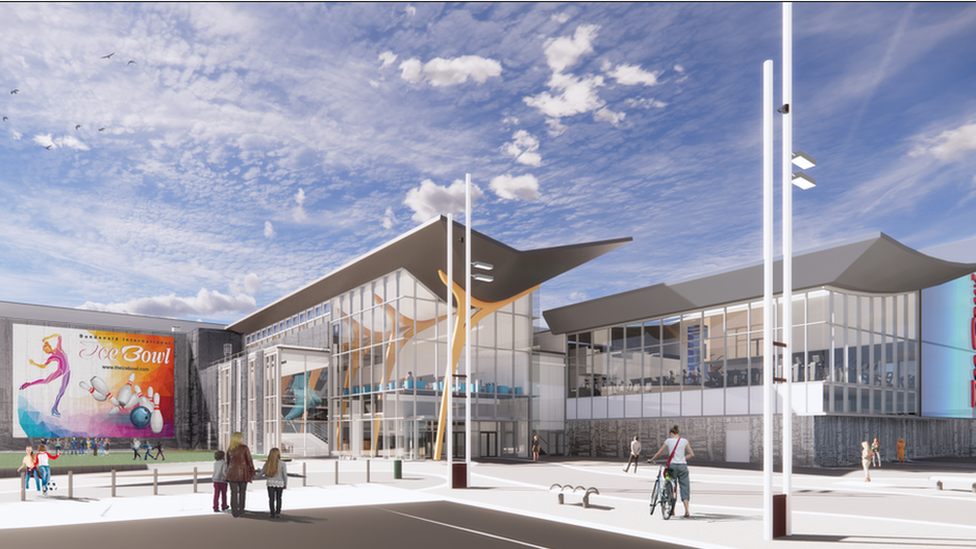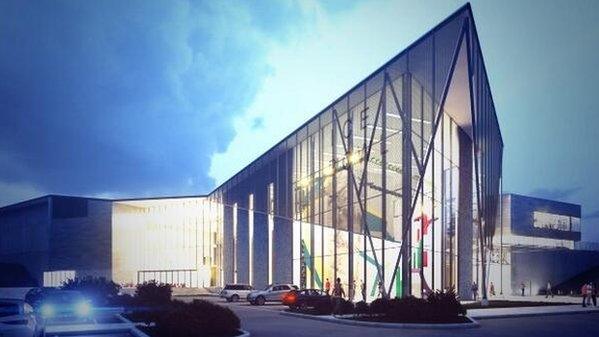Dundonald Ice Bowl redevelopment gets council approval
- Published

An artist's impression shows the planned redevelopment of Dundonald International Ice Bowl
A multi-million pound redevelopment at Dundonald International Ice Bowl has been approved at a full meeting of Lisburn and Castlereagh City Council (LCCC).
Councillors agreed to invest £52m in the project over the next three years.
The UK government's Department for Levelling Up, Housing and Communities (DLUHC) had already pledged, external £12.2m.
Council chief executive, David Burns, said the investment was a landmark commitment.
The Ice Bowl opened in 1986 and has more than 500,000 visitors a year.
The mayor of Lisburn and Castlereagh City Council, Andrew Gowan, said that after 37 years the building was no longer fit for purpose and the "announcement means we will see an exciting new leisure facility open to the public in 2026".
"We expect visitor numbers to rise to more than 700,000 in the first year," he added.
"During construction, the existing ice bowl will remain open for business with full access to all activities.
"This flagship facility will help to grow our economy regionally, create jobs and enhance tourism within the LCCC area and greater Belfast.
"It will also contribute to local regeneration and support inclusion and equality of access to important health and wellbeing activities locally."
Visitors will be able to enjoy an Olympic-sized ice rink, 24-lane bowling alley. 100-station gym, community rooms, restaurant and coffee shop.
Belfast East assembly member Naomi Long said the Ice Bowl was a "fondly-regarded local institution".
"I'll be eagerly awaiting updates on the redevelopment work as it gets underway hopefully in the near future," she added.
Previous plans
A planning application was originally made to rebuild the Ice Bowl in 2014.
But in December of that year the plans were put on hold due to concerns over costs for a range of projects associated with the reform of councils which was happening at the time.
Related topics
- Published2 May 2014

- Published1 December 2014
